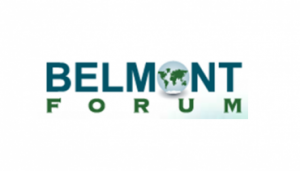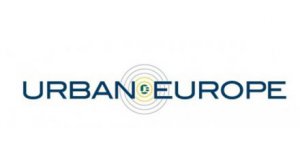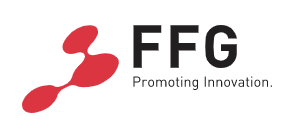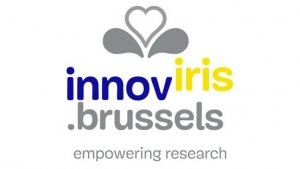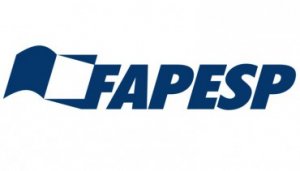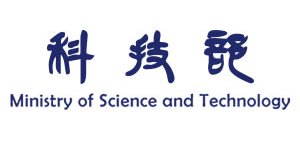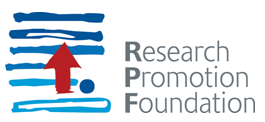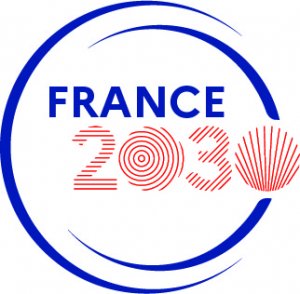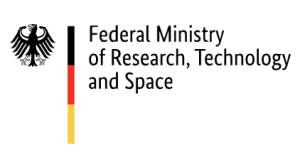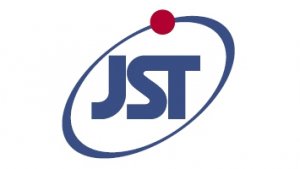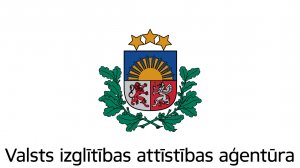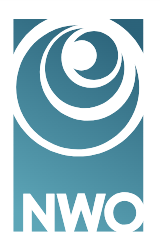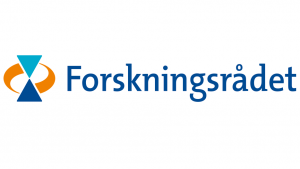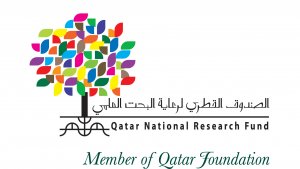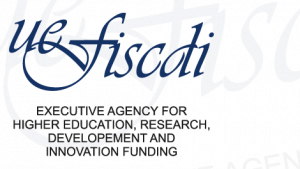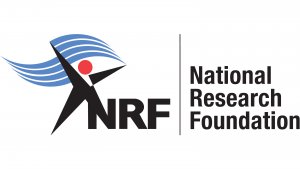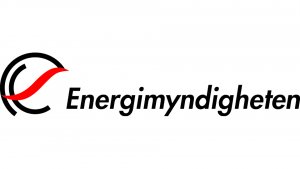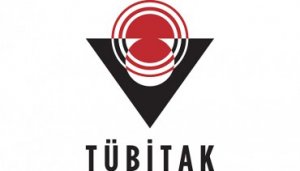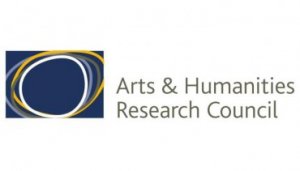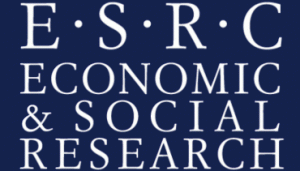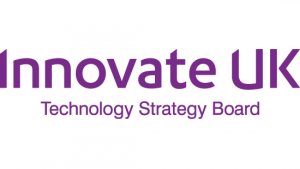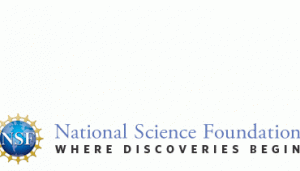Sustainable Urban Global Initiative (SUGI)/Food-Water-Energy Nexus
The Sustainable Urbanisation Global Initiative – Food - Water - Energy Nexus, SUGI-FWE Nexus for short, was established by the Belmont Forum and the Joint Programming Initiative (JPI) Urban Europe in order to bring together the fragmented research and innovation expertise across the globe to find innovative new solutions to the Food - Water - Energy (FWE) Nexus challenge. SUGI-FWE Nexus aims to develop more resilient, applied urban solutions that build on research and innovation efforts from across the globe, and which will benefit a much wider range of global markets. SUGI-FWE Nexus is supported by the European Commission and funded under the Horizon 2020 ERA-NET Cofund scheme under grant agreement No 730254.
Food-Water-Energy Nexus
The interactions between the food, water and energy sectors, both now and over the next few decades are of paramount interest to policy, science and society at large. By 2050, the world population is projected to increase to 9 billion and the number of people living in urban areas is expected to double. These trends in population density and movement, coupled with land use change, and climate variability will lead to major increases in demand for resources and hold important implications for security and social justice. The reciprocal and dynamic processes of urbanisation; physical movements of populations, the build-up of city territories, transformation of economic structures, extension of suburban sprawl and reurbanisation result in increasing regional stress on the urban food-water-energy (FWE) system. Understanding the consequences of global urbanisation is central to understanding global change due to cities’ and urban areas’ links to material and energy use; land-use transformations; resource-intensive behaviors and consumption; impacts on ecosystem services; and changes driving social and cultural inequities. Many of these processes are common to cities across different regions, but there is also much specificity.
In this context, the FWE nexus approach offers a framework for developing goals, targets, and solutions that balance trade-offs and maximize synergies between the food, water and energy sectors in order to accelerate transitions to resilient climate compatible urban development and to Sustainable Consumption and Production (SCP) patterns across the rural-urban gradient.
A nexus approach coordinates action and reduces the risk that progress towards one goal will undermine progress towards another. In addition, the nexus approach can also play a pivotal role in fostering sustainable urbanisation, by proposing potential solutions to govern resource interdependencies through comprehensive spatial perspectives and multi-level governance strategies.
Urban FWE nexus is an approach to urban complex systems where the focus is on the intersections and potential synergies between sectors (“silos” ) and fields commonly seen apart in business, policy and research: Urban governance, planning, and management; socio-economic development and cohesion; grey, green, and blue infrastructures; etc. The approach is devised to counteract wicked issues in urban sustainable development. The urban FWE nexus specifically describes where governance and socio-economic policy activities interact with the resource flows related to food, water, and energy (including feedbacks in coupled anthropogenic, biotic, abiotic, and engineered systems).
To date, we have a limited understanding of the FWE system’s complexity, resilience and thresholds. Investigations of this complex system will produce discoveries that cannot emerge from research on food or water or energy systems alone. The synergy and linkages among these components will open new avenues of inquiry, produce new robust transdisciplinary knowledge, and generate new business models and opportunities. Multiple disciplines, including, inter alia, biology, chemistry, computational science, cyber infrastructure, engineering, geosciences, arts and humanities, social and behavioral sciences, and mathematics are needed to study these interacting systems.
Building on the global sustainability challenges identified by Future Earth’s 2025 Vision, the ultimate goal of the present call is to rapidly evolve the knowledge base, advance indicators and assessment tools that are needed for a comprehensive understanding of the urban FWE nexus, and develop practical new solutions to the FWE challenges. The development of novel solutions for the complex challenges, including multi-level governance and management, and dynamic emerging risks and trade-offs, that urbanisation imposes on the FWE systems will contribute to the ability of populations to transition to sustainable consumption and production.
Obtaining this knowledge requires inter- and transdisciplinary approaches that address the interconnections and interdependencies between the natural and human systems. Similarly, the application-oriented solutions would integrate systems across the FWE nexus, services, policy or operational silos, jurisdictions or social behaviors to help develop practical innovations and support practitioner decision-making towards sustainable planning and practices, strategies and policies. These proactive solutions would target balancing trade-offs and amplifying synergies between the food, water, and energy sectors while simultaneously preserving the environment and contributing to the creation of attractive, sustainable and economically viable urban areas. These interactions have been identified as of common interest to both the Belmont Forum and Joint Programming Initiative Urban Europe (JPI UE) and hence are the focus of this Joint Call for Proposals.
Available budget
The total available budget for this call is approx. 28.5 M€, including support from the European Commission through Horizon 2020. Funds will be used to support as many high quality projects as possible. Each national/regional funding agency will provide funds directly to their eligible investigators in accordance to the agencies’ rules and regulations. Funds provided by the European Commission will be utilized to support eligible investigators in a maximum number of research projects.
Scope
The Research Approach
Through this call, the Belmont Forum and the Joint Programming Initiative Urban Europe collectively seek to bring together integrated teams of natural scientists, engineers, social scientists, arts and humanities researchers, business, and urban stakeholders to develop projects requiring collaborative, international, inter- and transdisciplinary research and innovation. Projects should support collaboration that goes beyond individual national efforts and demonstrates sharing, operationalizing and transferring existing knowledge, resources, and research facilities to mutual benefit.
All projects must integrate across the natural sciences (including engineering), arts and humanities, and social sciences and clearly engage stakeholders and demonstrate user needs relevant to the project goals.
Projects should examine a variety of coupled interactions and feedbacks among relevant systems and include an interdisciplinary, multinational and multi-scalar approach. Establishment of potential long-term partnerships, leveraging of existing knowledge networks and project co-design between researchers and stakeholders are essential components of the proposed projects. Research outputs should be targeted towards decision-making (including public and private spheres as well as communities) and innovations (technological, organizational and institutional as well as social).
Proposals may include aspects of fundamental and/or applied research as well as innovation and/or implementation. Project proposals do not have to focus on the eligible countries as (a) research subject(s); case studies may be conducted anywhere in the world. Project proposals may also build upon previous projects and do not have to start research and innovation from scratch.
Broader impacts of the proposed activity
In developing projects, teams should clearly articulate the benefits of the proposed activities to society as well as specific plans for broadly disseminating the results to enhance scientific and technological understanding. Teams should also consider, where appropriate, how the proposed activities advance discovery and understanding while promoting teaching, training, and learning; broaden the participation of underrepresented groups (e.g., gender, ethnicity, disability, geographic, etc.); and demonstrate how the project will enhance infrastructure for research and education, such as facilities, instrumentation, networks, and partnerships.
Objectives, Themes and Fundamental Questions
Recognizing the need for integrated solutions involving natural and social sciences, arts and humanities, engineering and stakeholders from all relevant fields, the Belmont Forum and JPI Urban Europe seek to foster research and innovation at the intersection of food, water, energy sustainable consumption and production, and urbanisation in this call. Understanding the regional/global FWE resource-flow connections and impacts on regional and global economies, natural and social systems necessitates transnational projects that connect not only multiple disciplines but also a variety of practitioners such as producers, farmers, other actors in supply chains and services, consumers, community groups, planners, and decision makers (e.g. city authorities).
Projects must address all three sectors food, water and energy by an integrative approach.
This collaborative research action seeks to advance research within the themes listed below:
- Theme 1. Robust Knowledge, Indicators and Assessments
- Theme 2. Multi-level Governance and Management of the Food-Water-Energy Nexus
- Theme 3. Managing Potential Strategies and Solutions to address emerging Risk and Tradeoffs at theintersection of Sustainable Urbanisation and the FWE Nexus
Types of research, development and innovation activities
This Call for proposals is open for projects referring to a broader range of research types from fundamental research to innovation. Different funding agencies will have the possibility to fund different parts of the R&D landscape. The combination of different of research approaches within one project (differentiation at work package level) is possible as long as involved funding agencies’ eligibility rules are fulfilled.
Proposal Requirements
Each project proposal must be submitted by a project consortium consisting of at least three eligible applicants from at least three participating countries. (Note: To be eligible for funding provided by the European Commission, the transnational project must involve at least two independent entities from two different EU member states or associated countries.) Clear added value of the international consortium should be demonstrated and, if relevant, the added value for national investments.
All proposals must integrate across the natural sciences and social sciences and should include an interdisciplinary, multinational approach. They should identify and address clear user needs, and examine a variety of coupled interactions and feedbacks among relevant systems. Where relevant and applicable to funding agency guidelines, it is strongly recommended that consortia develop applied innovations as well as research solutions.
Proposals should also include end-users, policy-makers or other relevant stakeholders and should include science products, which are directly applicable, available and usable to relevant stakeholders. Engagement of community participants or other stakeholders in the planning, designing, and completing of the research is necessary.
Guidelines for applicants
Some requirements are common for all applicants and funding agencies. In addition to these general requirements, there are specific funding agency rules which apply to applicants that claim funds from a specific funding agency). The term “proposal” is used both for the pre-proposal in the first stage of the evaluation procedure and the full proposal in the second stage.
Who can participate and apply
Each project proposal must be submitted by a project consortium consisting of at least three eligible applicants from at least three participating countries. Each project consortium must have the interest and competence to undertake research, development and/or innovation within the specified themes. Clear added value of the international consortium should be demonstrated and, if relevant, the added value for national investments.
Applicants
An organisation/institution or a person of the lead organisation is the Main Applicant, depending on the specific eligibility rules of the different agencies. In addition, a proposal must have at least two Co-applicants. The proposal may also include Co-operation Partners, whose role is described below. If funding is granted to a person, each person may only participate in a maximum of two proposals, and only once as Main Applicant. In the proposal, the participation of all partners involved must be convincingly justified.
Only applicants located in the following countries are eligible to apply as Main Applicant or Co-applicant, irrespective of their nationality: Argentina, Australia (to be confirmed), Austria, Belgium, Brazil (state of São Paulo), Chinese Taipei, Cyprus, France, Germany, Japan, Latvia, the Netherlands, Norway, Poland, Qatar, Romania, Slovenia, South Africa (to be confirmed), Sweden, Turkey, the United Kingdom, and the United States.
Applicants from other countries may participate as a Co-operation Partner.
Applicants can come from organisations such as:
- Companies (from industry/large companies to SMEs)
- Cities, municipalities, regions
- Consumers (e.g. business enterprises, test households, etc.)
- Citizens’ representatives, NGOs
- Research organisations (universities, university colleges, research institutes or other authorities with research undertakings)
Main Applicant’s role
The Main Applicant will be responsible for running and managing the project. S/he will be the contact point with SUGI-FWE Nexus on behalf of the whole consortium and is responsible for the administrative management of the complete project, should it be awarded funding. In addition, the Main Applicant is responsible for leading the project activities at his/her own organisation. The Main Applicant must be affiliated with an organisation situated in one of the participating countries in this call. The specific eligibility rules of the respective funding agency apply.
Co-applicants’ role
Each Co-applicant is responsible for leading the project activities at his/her own organisation. There may be more than one Co-applicant from any one country. If there is more than one Co-applicant from a country, one of them needs to be identified as the national consortium leader. Each Co-applicant should be affiliated with an organisation situated in a participating country. The specific eligibility rules of the respective funding agency apply.
Co-operation Partners
Partners from countries not participating in this call, or partners that are not eligible for funding from participating agencies, may be included in the projects as Co-operation Partners. Co-operation Partners can be included in the consortium if (a) they finance their activity from other sources and (b) the consortium in general fulfils the requirements on the number of applicants from participating countries. Project consortia involving Co-operation Partners must ensure that project results will be relevant for participating countries. Where appropriate, some co-operation partners could also support capacity building in developing countries and for early career researchers and technical staff. It should be noted that Co-operation partners do not count toward the minimum of three eligible applicants from at least three participating countries.
Project consortium
The added value resulting from transnational cooperation must be addressed in the proposal. There is no limit to the total number of partners who may be involved in each project. However, proposals for medium-sized projects submitted by consortia comprising applicants from approximately 3-5 funding agencies are expected. Consortia need to be balanced between countries both in terms of number of partners and distribution of budget. No one partner may represent more than 70% of the activity in the project (some countries may also impose lower participation levels for their funding).
While not mandatory to satisfy the 3-partner minimum, it is strongly encouraged that consortia contain at least two independent applicants eligible for funding from two different EU member states or associated countries and at least one applicant from another country participating in this call in order to be able to take advantage of the funds provided by the European Commission.
- Consortia may consist of partners from research organisations, companies, cities/municipalities, NGOs, etc. (see paragraph on “Applicants” above).
- Consortia may consist of partners active across several positions within the research and development system (i.e. innovation, applied research, fundamental research) and across disciplines (natural sciences, social sciences, humanities, and engineering).
- Consortia may include partners representing stakeholder/user groups.
- In the case of an Innovation project, consortia are required to prove the interest and active involvement of project partners in the consortium, who will either within the project, or as a consequence of the project, implement the solutions developed by:
- Including stakeholders or implementation partners in the consortium who are eligible for funding; or
- Having stakeholders or implementation partners not eligible for funding, who express their interest in the full proposal in a Letter of Intent. The letter must contain an explicit declaration about the financial or in-kind contribution agreed upon. In-kind contributions are contributions in person-hours of personnel or material contributions such as the use of specific software and access to facilities. In-kind contributions should be capitalised in the Letter of Intent and should be an integral component of the project plan. The amounts stated in the letter must agree with the amounts stated in the budget for the proposal.
What can be applied for
Project duration
Projects may be funded for a maximum of 3 years, and must start between December 2017 and March 2018. The starting date may depend on the budget allocation (rules) of the specific funding agencies. The end date of a project should be harmonised for all applicants in the same consortium.
Funding
The total funding available in this programme amounts up to approx. 28.5 M€ across all participating applicants. There are no fixed minimum or maximum limits for a project size. Medium-sized projects with total budgets requested from the funding organisations in the range of 1-2 M€ are typically expected, which allows approximately 15-20 projects to be awarded funding though total project costs can be higher.
There are, however, (national) funding limits for the respective partners. Table 1 in Annex A indicates the bandwidth of funds available from each of the respective national funding agencies. For more information on the specific funding agencies’ rules, please see Annex A.
In the proposal a justification of the requested budget is required. The estimated budget must be given in Euros only and be tabulated according to the proposal template provided. All costs must be eligible according to the funding agencies’ rules available (see Annex A). In case of doubt, applicants should consult their respective funding agencies to advise.
(Note: The European Commission, the European Court of Auditors [ECA] and the European Anti-fraud Office [OLAF] can exercise their rights to carry out checks, reviews, audits and investigations and evaluate the impact of the action also towards project partners of SUGI-FWE Nexus transnational projects if they receive financial support also from the European Commission.)
Funding agencies’ rules and eligibility criteria In addition to the general rules and procedures laid out in this document, there may be specific funding agencies’ rules (e.g. funding agencies’ eligibility criteria for certain organisations, co-funding requirements, national evaluation rules, etc.). It is strongly recommended that these are checked with the contact person at the respective funding agency (see Annex A) before submitting a proposal. Please note the re are limitations regarding the types of activities different funding agencies are able to support.
